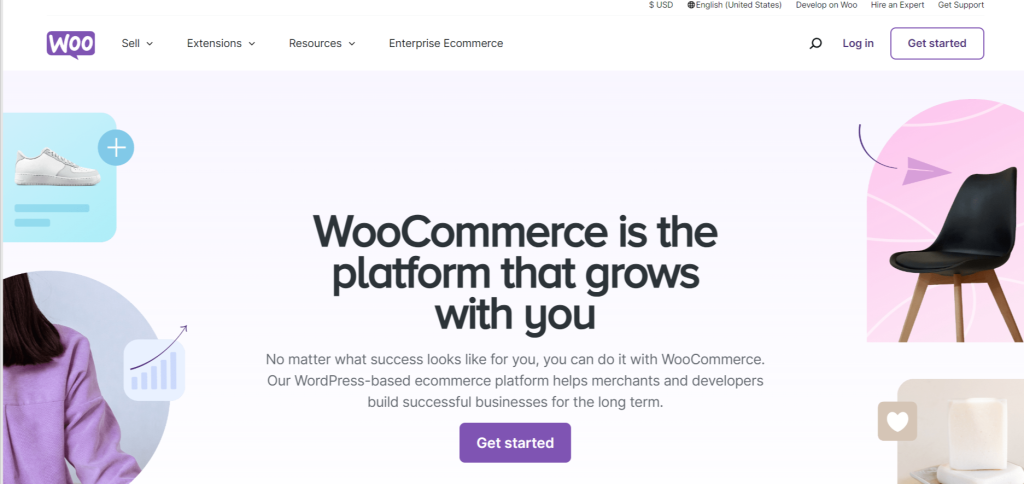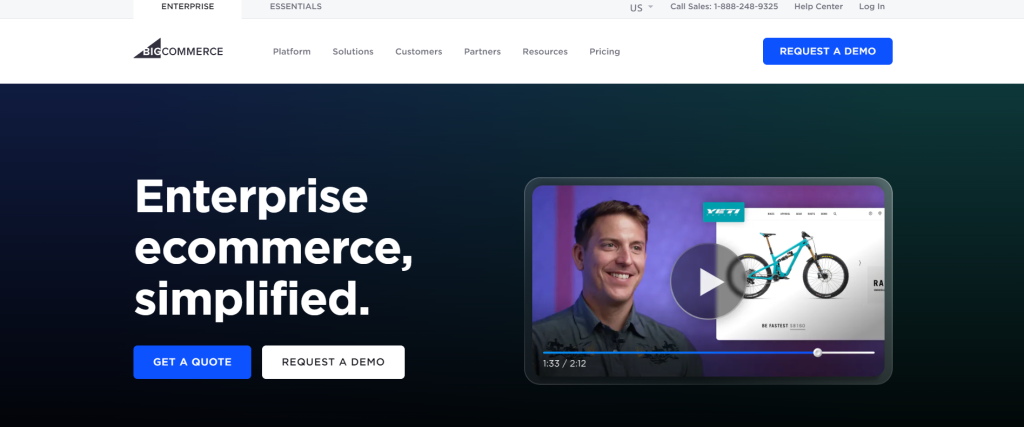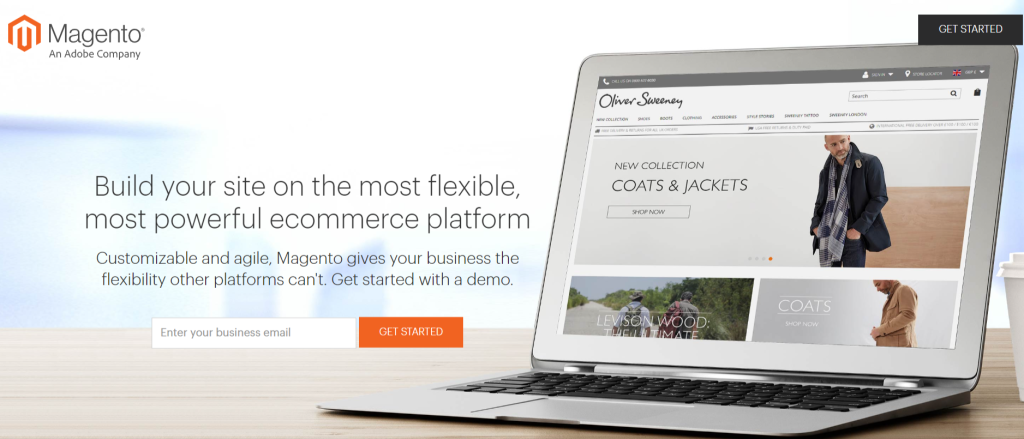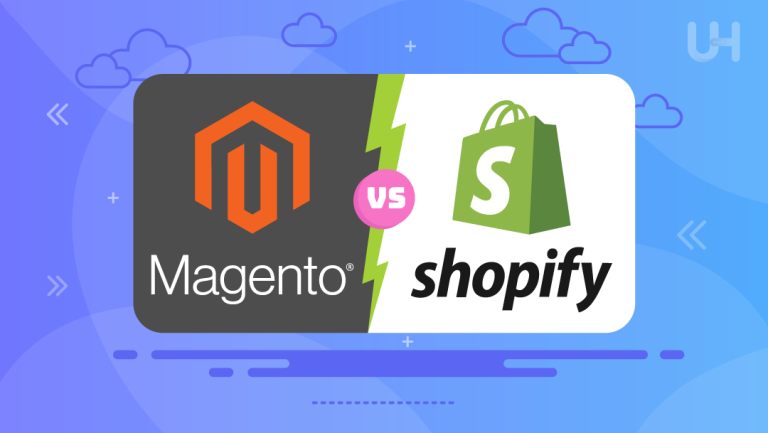If you are looking for the best platform for dropshipping in 2025, you’re in luck. In this blog, we handpicked the five top e commerce dropshipping platforms to help you find the best one for your business. With the increasing popularity of ecommerce dropshipping, the demand for automation tools is at an all-time high.
The best eCommerce platforms for dropshipping streamline workflow, from lead generation and promotion to order initiation, shipping, and follow-up. But before delving into the details, let’s quickly walk you through the factors to consider when choosing the best e-commerce dropshipping platforms. Let’s go!
What Factors Should You Consider Before Choosing the Best eCommerce Platforms for Dropshipping?
When choosing the best eCommerce platform for dropshipping, several factors play a crucial role in determining the platform’s suitability for your business. Here are the key factors to consider.
Ease of Use
An intuitive and easy-to-navigate platform is essential, especially for those new to dropshipping. Platforms with user-friendly interfaces, drag-and-drop features, and minimal learning curves are ideal for beginners. If you want to integrate dropshipping services into your WordPress website, ensure your shortlisted platform is compatible with the WordPress environment and all essential plugins, such as performance extensions, analytics tools, and more.
Product and Inventory Management
A robust inventory management system is essential for dropshipping, as you rely on suppliers to handle stock. Choose a platform that syncs with suppliers, provides real-time inventory tracking, and offers automated stock updates to avoid overselling.
Customization and Flexibility
Your platform should allow flexibility in customizing your store’s design and layout. This helps differentiate your store from competitors and align with your branding. Look for themes, templates, and customization tools that are adaptable without requiring deep coding knowledge. We recommend choosing a responsive WordPress theme to improve page load speeds and enhance user engagement.
Payment Gateways and Transaction Fees
Check whether the platform supports multiple payment gateways (e.g., PayPal, Stripe), as this offers flexibility for customers and can reduce cart abandonment rates. Also, evaluate the transaction fees associated with each platform, as they can eat into your profit margins.
SEO and Marketing Tools
Effective SEO and marketing tools are essential for driving traffic to your dropshipping store. Choose platforms that offer built-in SEO features, email marketing integrations, social media tools, and analytics to help track your store’s performance. For better optimization, ensure your preferred platform is compatible with WordPress SEO plugins.
The 5 Best eCommerce Platforms for Dropshipping Compared
Here are the five best eCommerce platforms for dropshipping in 2025. We recommend comparing the key features, pros, and cons to find the best one for your application.
Shopify

Shopify is one of the most popular eCommerce platforms for dropshipping due to its simplicity, vast app integrations, and scalability. It offers built-in dropshipping apps like Oberlo, DSers, and Spocket, which streamline product sourcing and order management. Shopify provides a variety of themes and customization options, making it easy to design your store. It’s compatible with most eCommerce hosting plans.
Key Features
- App Integrations: Shopify offers a variety of dropshipping apps like Oberlo, DSers, and Spocket to streamline product sourcing and order fulfilment.
- Scalability: Easily handles high traffic and growing inventory, making it ideal for both small and large-scale businesses.
- Mobile Optimization: Shopify themes are responsive and designed to provide a seamless mobile shopping experience.
Pros
- Extensive third-party app marketplace enhances functionality
- Reliable 24/7 customer support available through chat, phone, and email
- Fast, secure hosting with an SSL certificate and PCI compliance
Cons
- Transaction fees apply unless you use Shopify Payments, reducing profit margins
WooCommerce

WooCommerce, a plugin for WordPress, is a highly customizable and flexible platform. It allows users to build an eCommerce store on an existing WordPress site. WooCommerce is free to use but requires third-party integrations for dropshipping, such as AliDropship or WooDropship. It’s ideal for those comfortable with WordPress and looking for complete control over their store’s design and functionality.
Key Features
- Customization: Built on WordPress, WooCommerce allows extensive customization through themes, plugins, and coding.
- Open Source: WooCommerce is free and open-source, offering full control over your store’s design and functionality.
- Dropshipping Integrations: Supports popular dropshipping plugins like AliDropship and WooDropship for efficient product management.
Elevate Your Business with WooCommerce Hosting
Turn up the speed and boost your sales with Ultahost’s WooCommerce Hosting built for performance. Sell with confidence as our WooCommerce Hosting is both secure and scalable. Unleash 5x Speed – Boost Sales and Keep Customers Happy.
Pros
- Free to use, making it a budget-friendly option for small businesses
- Full control over hosting and site performance
- Large developer community offers plenty of support and plugins
Cons
- Requires some technical knowledge to set up and maintain effectively
BigCommerce

BigCommerce is a robust eCommerce platform that offers excellent scalability and advanced features for large dropshipping businesses. It integrates with major dropshipping apps and suppliers, including Printful and AliExpress, and offers extensive built-in SEO and marketing tools. BigCommerce is known for handling large inventories and high traffic, making it a top choice for growing businesses.
Key Features
- Scalability: BigCommerce handles large inventories and high traffic, making it suitable for rapidly growing businesses.
- Built-in SEO and Marketing Tools: Features advanced SEO options and built-in tools for email marketing, Google Ads integration, and more.
- Multi-Channel Selling: Allows seamless integration with platforms like Amazon, eBay, and social media for multi-channel sales.
Pros
- No transaction fees on any plan, unlike some competitors
- Excellent SEO features for better search engine visibility
- Supports high-volume stores with advanced functionality
Cons
- Monthly pricing is higher compared to some alternatives, especially for small businesses
Squarespace

Squarespace is a visually-driven platform known for its beautiful design templates and simplicity. While not traditionally an eCommerce powerhouse, Squarespace supports dropshipping with integrations like Printful and Spocket. It’s a good option for creatives who prioritize design over extensive eCommerce features. However, its limited scalability and fewer dropshipping tools compared to Shopify or WooCommerce may restrict large-scale businesses.
Key Features
- Design Templates: Known for its high-quality, visually appealing design templates, Squarespace allows users to create stunning storefronts.
- Easy-to-Use Interface: Simplified, drag-and-drop functionality makes it ideal for beginners or creatives focused on design.
- Dropshipping Integrations: Supports dropshipping with integrations like Printful and Spocket, although with fewer options compared to Shopify.
Pros
- Beautiful design-focused templates perfect for creatives
- Seamless website and content management, ideal for beginners
- Integrated analytics tools to track site performance
Cons
- Fewer advanced eCommerce features, limiting scalability for larger stores
Magento

Magento is an open-source platform known for its high degree of customization and scalability. It’s best suited for large businesses with advanced technical needs, as it requires extensive development knowledge. Magento supports dropshipping through third-party extensions like Dropstream and Webkul. It is also compatible with top-rated Magento hosting plans. While incredibly powerful, Magento is complex and may not be ideal for beginners or small businesses.
Key Features
- Customizability: Magento offers an open-source platform with a high degree of customization for large businesses.
- Third-Party Extensions: Supports dropshipping through extensions like Webkul and Dropstream.
- Scalability: Built for large-scale eCommerce operations, Magento handles massive inventories and traffic effortlessly.
Pros
- Extremely powerful and flexible for large, complex stores
- Large developer community offers extensive third-party support
- Strong security features for high-risk industries
Cons
- Requires significant technical expertise or developer assistance to manage effectively
Conclusion
That concludes our list of the best eCommerce platforms for dropshipping in 2025. We handpicked the most powerful tools to help streamline your business workflow. Each platform is uniquely capable, making them ideal for diverse applications. We suggest you compare them to find the best platform for your application.
Are you looking for a reliable web host for your online dropshipping store? Choose Ultahost’s powerful Dedicated Hosting Plans for flexible deployment options and custom configurations. Enjoy fast, secure, and reliable dedicated servers, DDoS protection, and SSD NVMe Storage, starting at just $74.83/month.
FAQ
Which is the best eCommerce platform for dropshipping?
The best dropshipping platform is the one that meets all your needs. We handpicked the top 5 platforms to help you choose.
How do I find the best eCommerce dropshipping platform?
Compare ease of use, dropshipping integrations, pricing, and scalability to match your business needs and growth plans.
What is dropshipping?
Dropshipping is an order fulfilment method where retailers sell products without holding inventory, shipping directly from suppliers.
Is WooCommerce a good dropshipping platform?
Yes, WooCommerce is ideal for tech-savvy users seeking customization and flexibility, with many dropshipping plugin options.
What are the benefits of a eCommerce dropshipping platform?
Dropshipping platforms simplify product sourcing, automate order management, and allow selling without inventory, reducing upfront costs.
Why do I need a dropshipping platform for eCommerce?
A dropshipping platform automates processes like inventory updates, order fulfillment, and supplier integration, saving time and resources.
Is WordPress good for dropshipping?
Yes, WordPress with WooCommerce offers high flexibility, customization, and plugin options for efficient dropshipping management.












